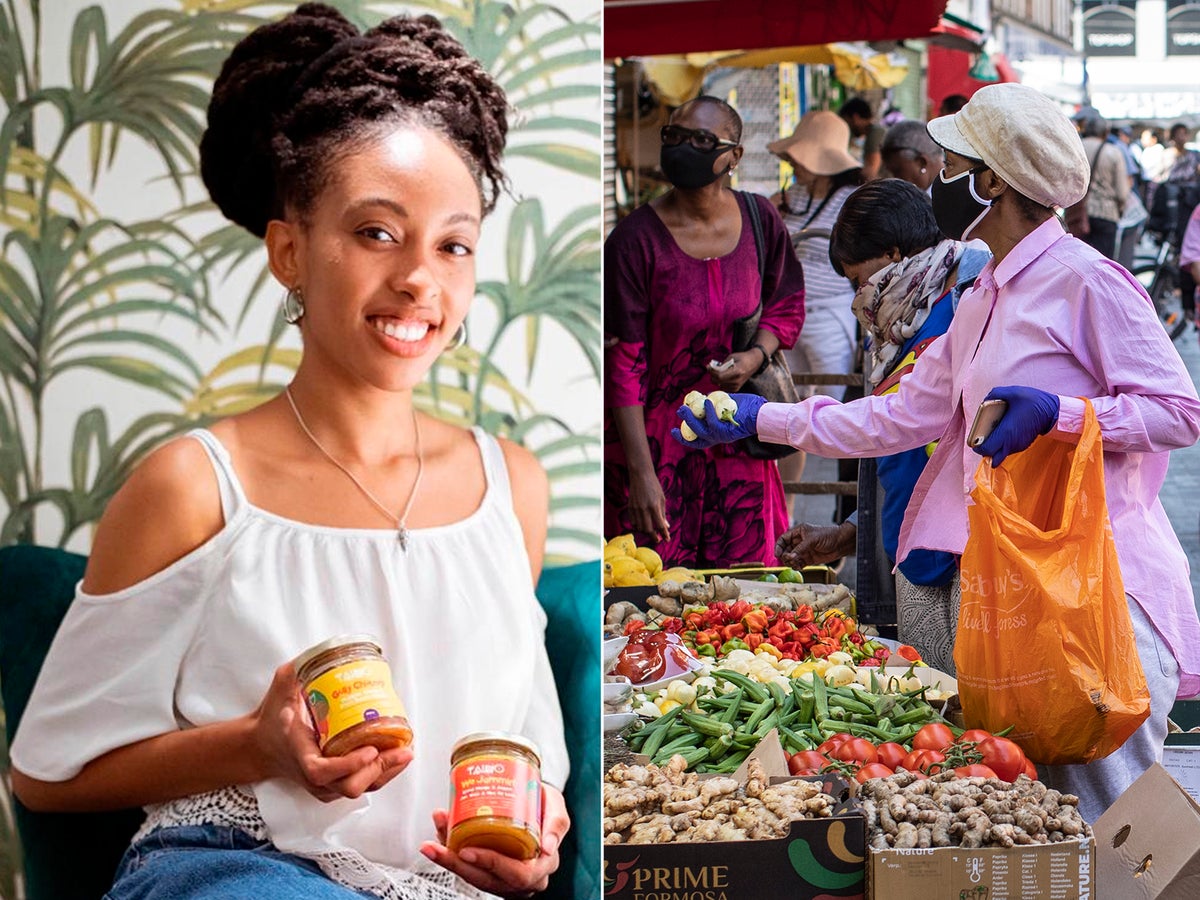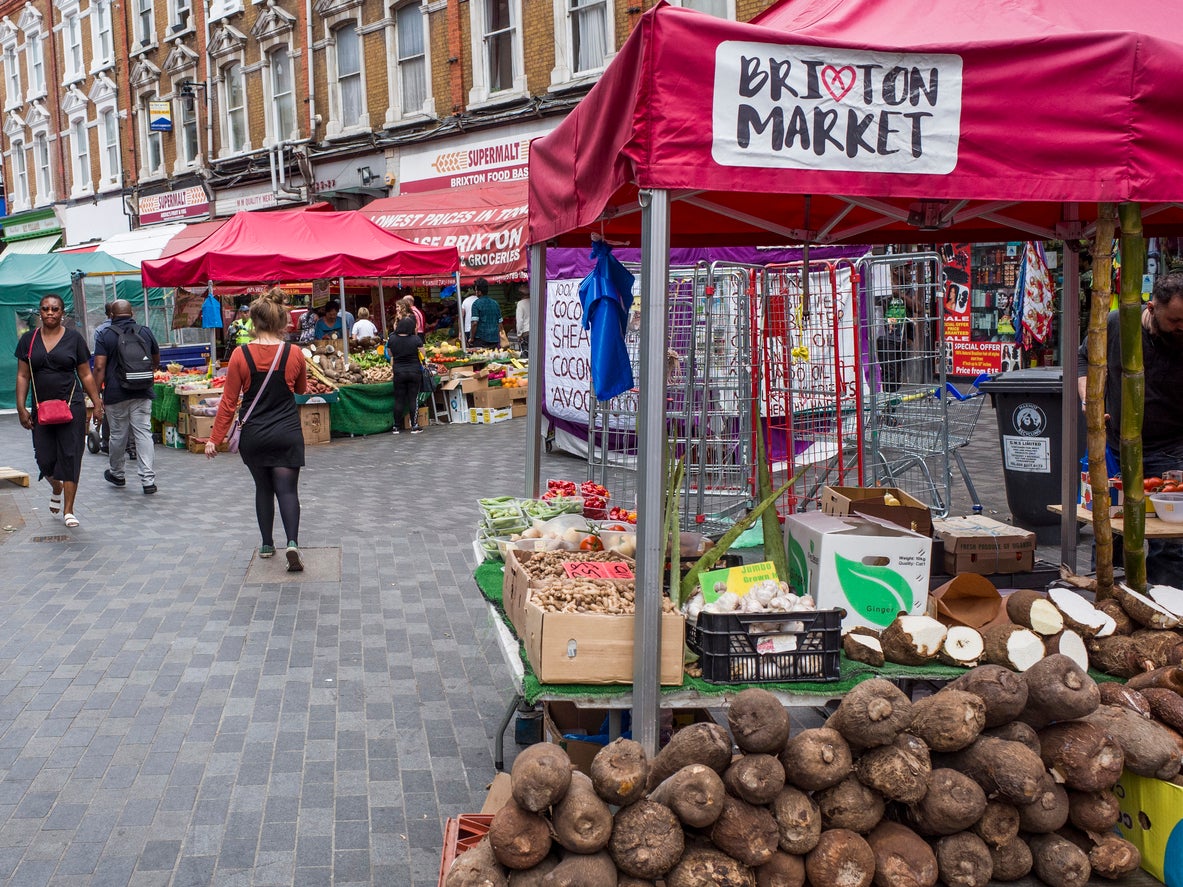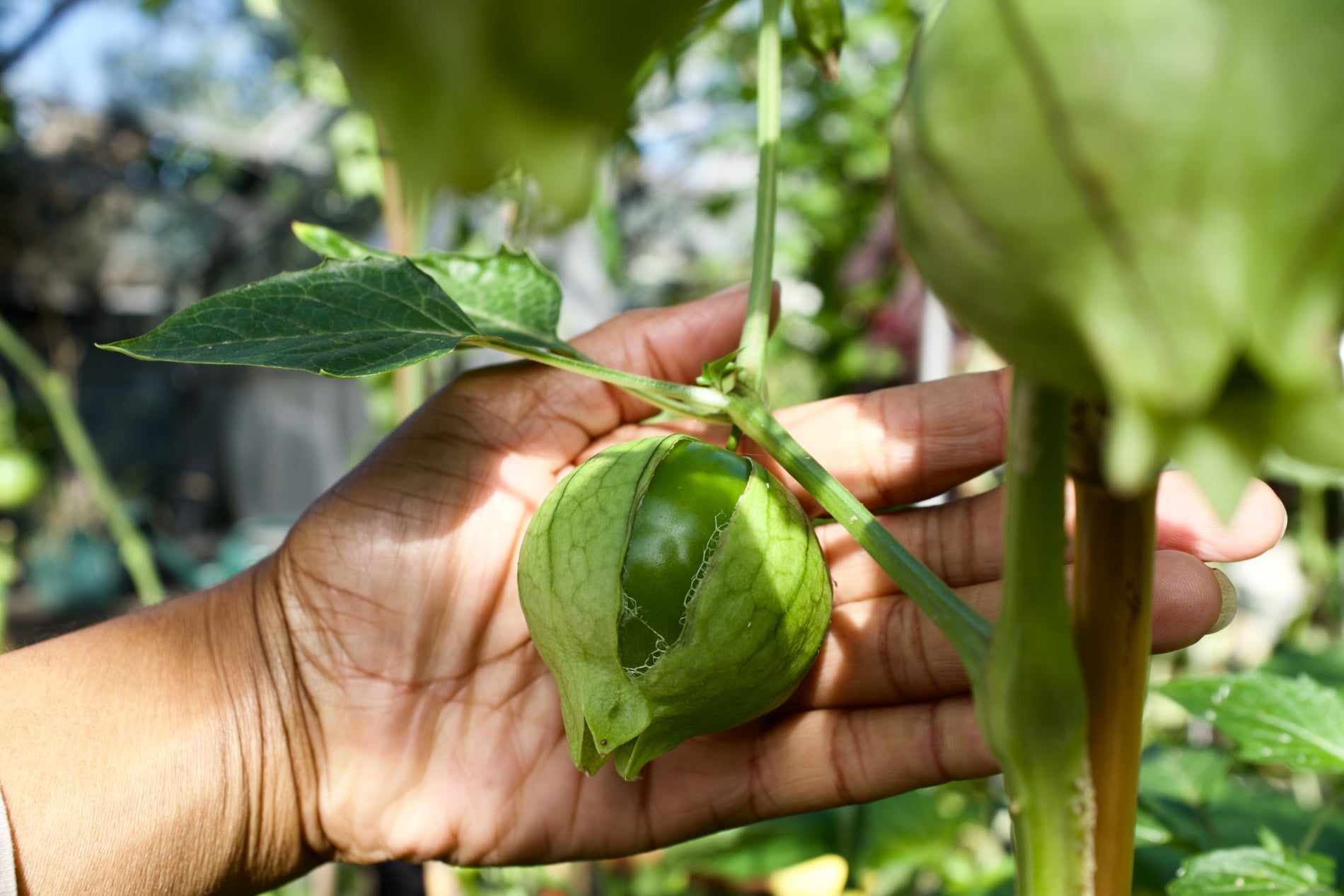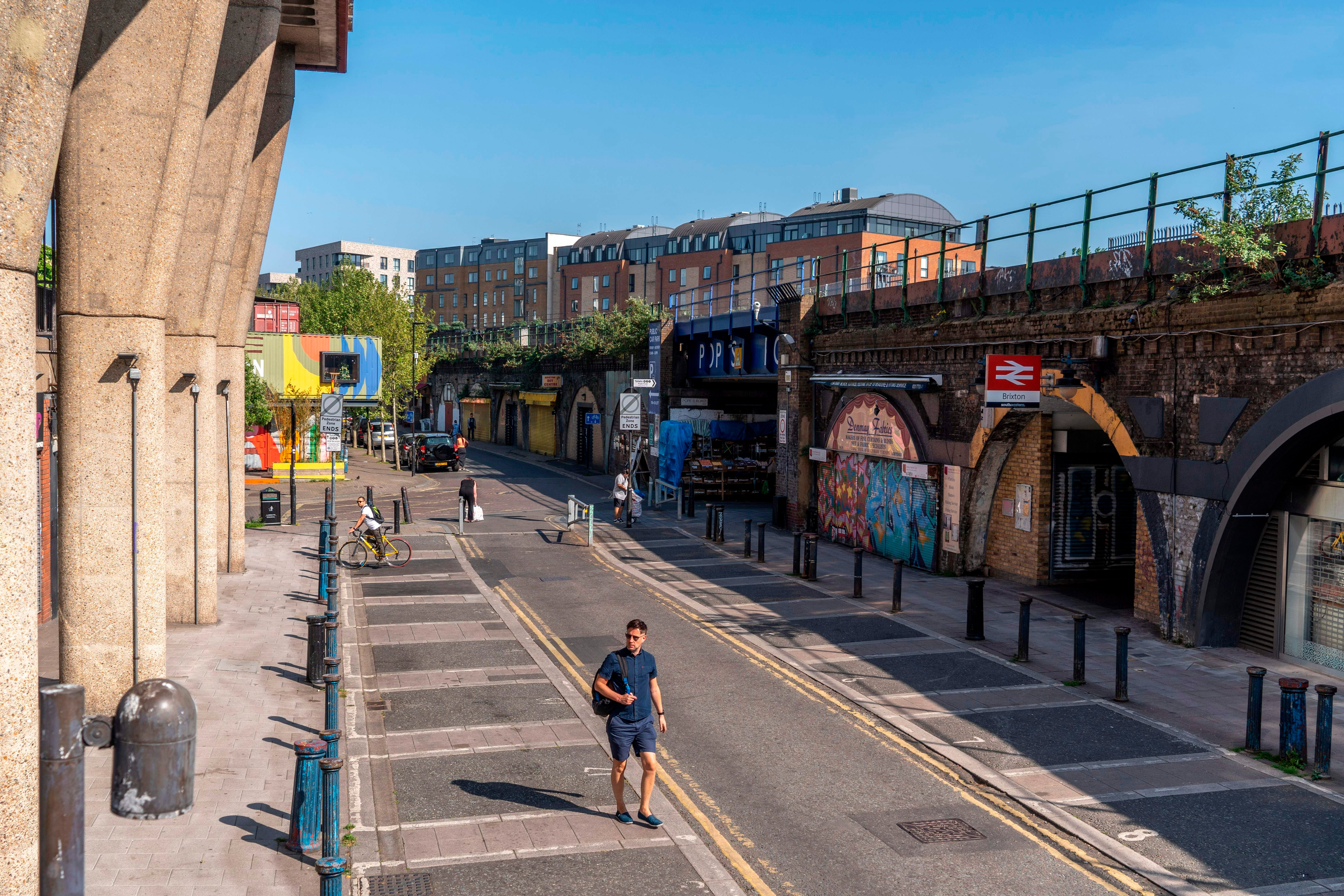
“Racism, classism and not feeling safe in majority-white, middle-class spaces, is largely why Black farmers aren’t able to sell their produce in many of the traditional market spaces,” say traders Natasha Pencil and Aisha Jade.
Hence, the pair’s upcoming ‘Black Farmers Market’, billed as the first major one to take place in Britain, is a bid to redress the balance and give Black growers a platform to ply their trade.
While working on Brixton Station Road in south London, Aisha and Natasha say they’ve often been met with complaints from fellow Black entrepreneurs about a lack of investment, viable opportunities, and publicity for their businesses.

Frustrated with the current status quo, Natasha decided to take matters into their own hands by launching the event to increase exposure for Black growers and makers this Black History Month.
After approaching the council and various entities for grants, the rest, as they say, is history - though not without challenges.
This Sunday, Between POP Brixton and Brixton Station Road, the event will present opportunities for customers to buy fresh produce, street food and drinks while enjoying family activities against the backdrop of music from a live DJ.
“There are quite a few Black farmers markets in the US - but we just don’t really have much of a presence in that UK agricultural space, so to have a Black farmers market here is very new,” Natasha, director of the event, told The Independent.

“Black farmers exist in this country but in terms of them having an outlet to sell their produce, that isn’t easy to come by.
“It’s quite difficult for the many people who do grow produce to set up a business and really move forward with it, because selling your crops is one thing but the business side is another. There aren’t really the resources to help with that.”
The event aims to reinvigorate a part of Brixton that often gets overlooked for “flashier market destinations” while bringing together a wealth of local talent, the pair explained.
There are farmer’s markets up and down the country which are distinguished from the public markets generally housed in permanent structures and marked by the sale of commercial goods in addition to fruits and vegetables. Experts will tell you that farmers markets are good for local economies, consumers and the environment.
However, these spaces are often hard to break into. Many are run by private companies that charge high rates and expensive fees to rent gazebos and key equipment, plus there are also waiting lists for markets in popular areas, Natasha and Aisha said.
Plus, the entrepreneurs say a lot of information about the documents, equipment and training required to begin trading isn’t readily available.

“If you do get there where there’s often not much diversity or representation; often, Black growers don’t feel connected to the space that may be available to trade in,” Aisha, founder of healthy drinks range Carisips, explained, and then their customers will also be disinclined to buy there.
The ‘Black Farmer’s Market’, Natasha’s brainchild, has been funded through her own pocket plus, a combination of grants from Peabody Communities fund, Give Black - Ujama, Brixton Bid, the Oak Foundation, and a small contribution from Lambeth Council’s Regeneration team.
“One of the benefits of this event is the growers will be registered with the Lambeth markets team so when the season’s back around again, and they have their fruit and vegetables, they can come back and trade on Brixton Station Road,” she explained.
“I’m literally introducing new traders and potential entrepreneurs to a street that is so under-utilised right now”.
Yet, Lambeth Council’s regeneration team has not been fully supportive of the ‘Black Farmer’s Market’ initiative, the pair claimed, with some of the team advising that they can’t see how this, in the long term, will help to regenerate the area.
The event has gained support from Labour Councillor Dr Jacqueline Dyer, who said: “I welcome the opportunity to showcase Black-led business/entrepreneurs in Lambeth”.
When approached for comment about the Lambeth Council’s Regeneration team’s alleged reservations, a council spokesperson said it is investing in the market and overall business for traders.
“Lambeth Council has been delighted to be able to support the Black Farmers Market to take place on Sunday 9 October, by providing funding and in-kind support,” they added.
“This is an exciting opportunity to showcase Black-led business and attract more traders and raise the profile of the renowned Brixton Station Road.
"The council will work with the organisers and traders to explore how traders can be supported to trade regularly on Brixton Station Road.”
Access
The Roots Farmer, one of the few commercially successful Black farmers in Britain, will be selling produce at Sunday’s event.
"The relationship between food, land, social justice and culture is an important part of the conversation that can lead Black communities towards greater equity in western society,” the farmer, who launched a fresh produce subscription box told The Independent.
“We believe that everyone should have access to high-quality nutritious food so I am really excited to see the launch of the Black Farmers Market, which will shine a light on these issues”.

Separation from natural, healthy food is all-too rife within marginalised communities that grapple with poverty - and further evidenced through disparities in health outcomes, Aisha pointed out.
“We know that Black people are into health; veganism, for example, is nothing new to our communities,” she continued. “Our elders from Africa and the Caribbean have very much been about roots, these things that grow in their backyard. But lack of access is an issue, the reality of many Black people not feeling that they may be going into a safe space to purchase it.”
Obstacles
The obstacles facing Britain’s Black farmers and growers aren’t new. Yet, agriculture is known as one of the country’s least diverse industries, plagued by a chronic lack of inclusion, in a country where Black entrepreneurs are being held back from matching the financial performance of white counterparts.
Land access is a serious issue. Official statistics show that some 98.6 per cent of farm managers and owners are white British; only 2 per cent of Black Britons live in the countryside, according to a 2017 study.
Many Black people can attest to being stared at some countryside pub or sticking out like a sore thumb when visiting the Shires, let alone owning property there.
“Britain’s agriculture is still very feudal - that hasn’t changed,” explained Natasha, who’s been selling Taino , her own Caribbean-inspired small-batch condiments lines in markets since 2018. “We still have a largely upper-class, rich, white landowning majority in this country. When it comes to commercial farms, Black people just don’t have that presence.
“In terms of the other option of leasing land, there are also issues with Black people not being granted decent loans from banks or given reasonable leases so they can operate a farm and maintain a farming enterprise. It’s expensive to get into.”

Institutional landowners such as the National Trust and the Church of England have been heavily criticised for failing to do more in tackling the issue.
“They should be ashamed….and could be leading the way, especially with tax incentives from government for landowners who devise schemes to attract new entrants,” Wilfred Emmanuel-Jones, farmer and the founder of The Black Farmer food brand, said.
The UK’s agriculture sector contributed a total income of around £4 billion to the economy last year, according to the latest government data, which shows that earning potential is there despite the industry being difficult to tap into.
Brixton, once known as the ‘Black capital of the UK’, was home to one of Britain’s first Windrush communities and is historically diverse.
Yet gentrification has since descended upon the area, stripping away parts of it beyond recognition and pushing local residents out of their homes and business to make way for wealthy, rich new arrivals. Despite local attempts to hold onto the area’s cultural significance, many fear it’s slipping away.
“Part of the reason I was so passionate about this idea was because it felt like a way for us to reclaim Brixton,” Natasha said.
“Markets and events should be the first port of call when you’re testing your business and figuring out who your customers are. The station road market was once one of the places that gave people a chance, while other markets are run by private companies that cherry-pick and choose traders in their own image.”
“We hope this isn’t just a one-off event and that it’s an opportunity to have a wider dialogue about race equity in agriculture and why there’s such a large barrier for people of colour in this sector.”







